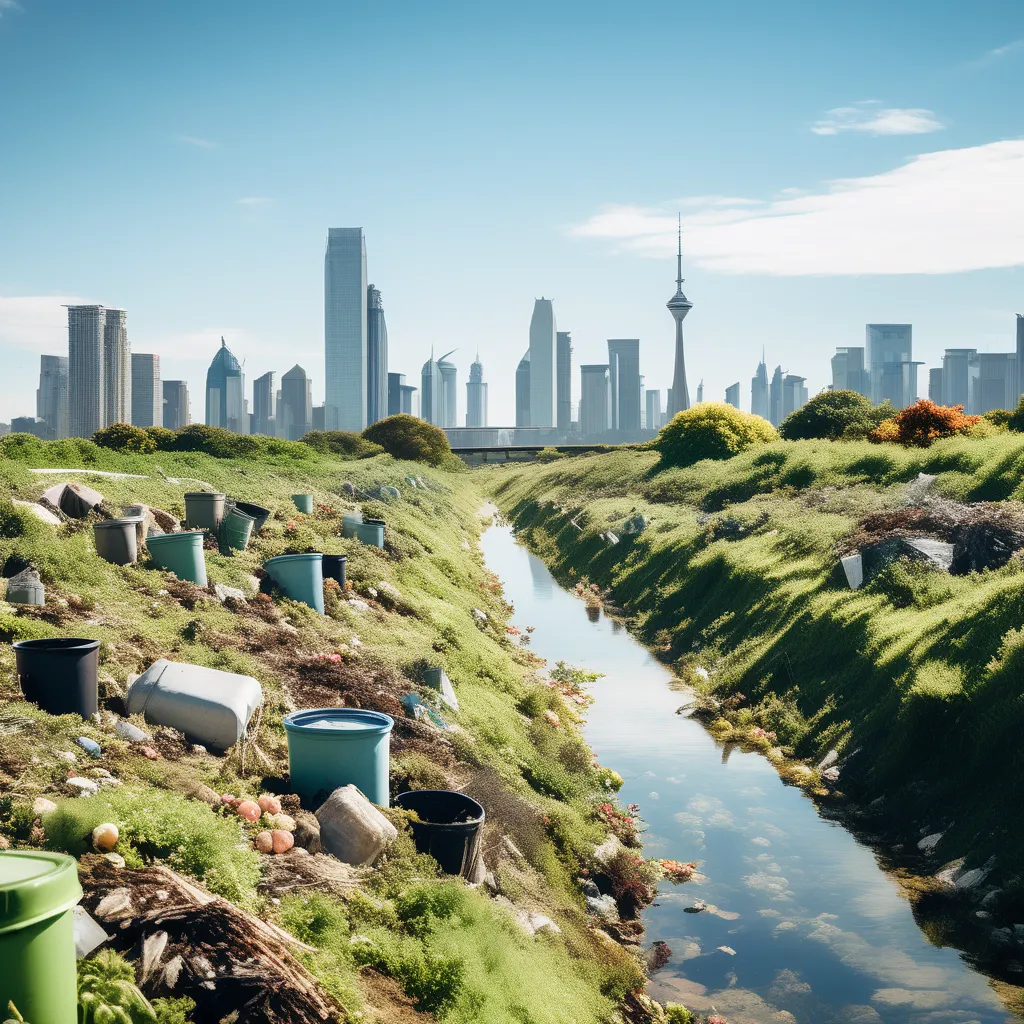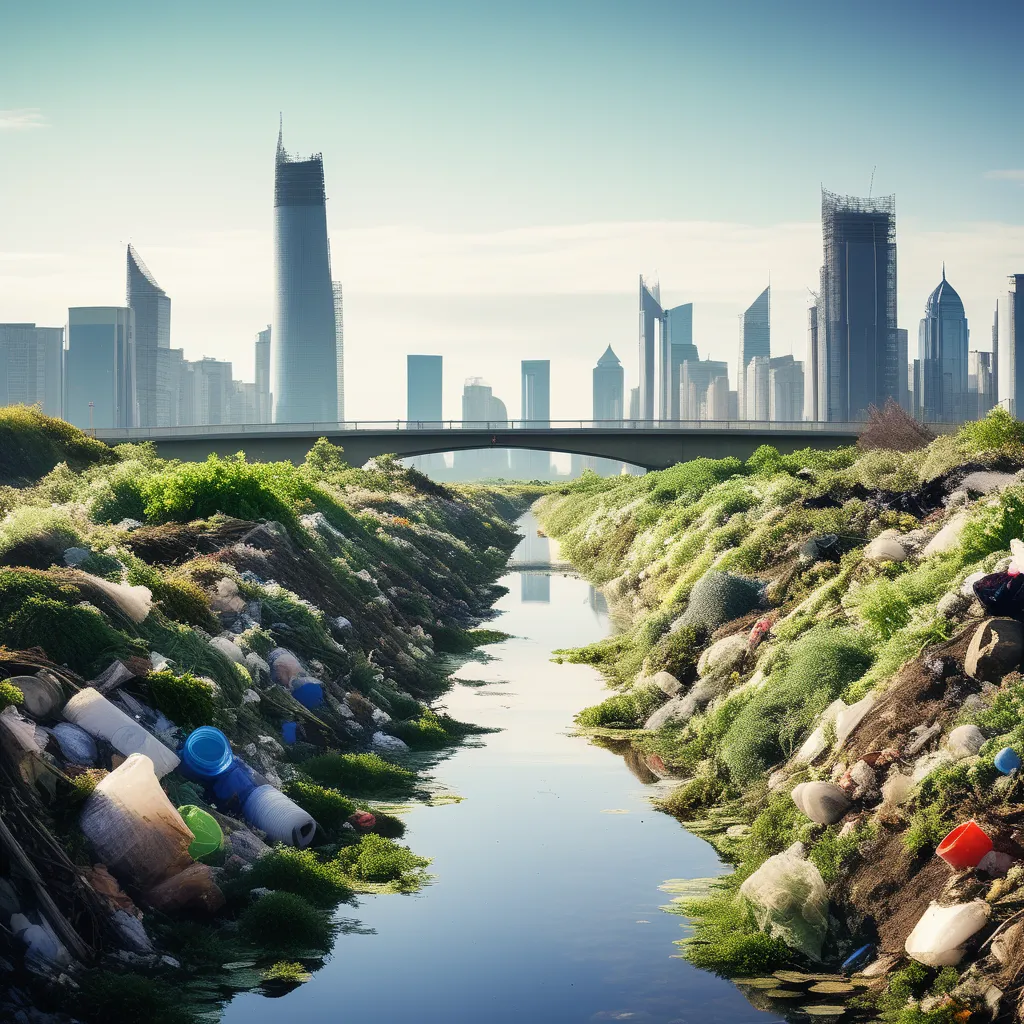Zero-Waste Cities Becoming a Reality
Picture this: a city where waste is not a problem but a valuable resource. It might sound like a utopian dream, but zero-waste cities are fast becoming a reality. From reducing, reusing, and recycling to innovative waste-to-energy solutions, cities around the world are taking bold steps towards a sustainable future.

A Personal Awakening
My journey into understanding the importance of waste management began with a simple visit to a local landfill. Seeing mountains of waste piled high, knowing that this was just a fraction of what our city produced, was a wake-up call. It made me realize that we needed a better way.
The Scourge of Single-Use Plastics
Single-use plastics, in particular, had become a symbol of our throwaway culture. It was everywhere - from disposable coffee cups to plastic shopping bags. I knew we had to do better.
The Zero-Waste Movement
The concept of zero waste is simple: eliminate waste by reducing, reusing, and recycling. It's a mindset shift that challenges our disposable habits.
Source Reduction
Source reduction involves reducing waste at the very beginning. This means making conscious choices like using reusable bags, opting for products with minimal packaging, and saying no to single-use plastics.
The Power of Recycling
Recycling is not a new concept, but its importance has grown exponentially. It's not just about separating your trash; it's about ensuring that materials are collected, sorted, and processed efficiently.
I started composting at home, and it was incredible to see how much of our kitchen waste could be turned into nutrient-rich soil. It made me realize that even in a small way, I could contribute to reducing waste.
From Waste to Resource
Zero-waste cities take things a step further. They view waste as a valuable resource, not something to be discarded. Here are some key strategies they employ:
1. Circular Economy
Cities are embracing the idea of a circular economy, where products and materials are designed to be reused, repaired, and recycled. This minimizes the need for raw materials and reduces waste.
2. Innovative Technologies
Waste-to-energy technologies are on the rise. These solutions convert waste into energy, reducing landfill dependence and generating power for homes and businesses.
3. Community Engagement
Successful zero-waste cities actively involve their communities. They educate residents about waste reduction, provide recycling infrastructure, and encourage local businesses to adopt sustainable practices.
Success Stories
Many cities have already made remarkable progress towards zero waste. San Francisco, for instance, has achieved an impressive diversion rate of over 80%, meaning that only a small fraction of waste goes to landfills.
The San Francisco Model
San Francisco's success can be attributed to its multifaceted approach, including strict recycling and composting laws, robust educational campaigns, and incentives for businesses to reduce waste.
The Bhutan Example
Bhutan, a small Himalayan nation, is making strides in waste management by banning single-use plastics and promoting traditional woven bags as a sustainable alternative. It's proof that even small-scale efforts can have a significant impact.
Challenges and Roadblocks
While the zero-waste movement is gaining momentum, it's not without challenges. Some cities face resistance to change, lack of infrastructure, or financial constraints. However, these hurdles are not insurmountable.
I've seen how resistance to change can be strong, but I've also seen how small initiatives can spark a movement. It's all about finding those who share the vision and working together.

A Bright Future
The journey towards zero-waste cities is an inspiring one. It's a reminder that collective action can bring about profound change. By reimagining our relationship with waste, we're not only reducing pollution but also conserving resources and creating a sustainable future.
In conclusion, the dream of zero-waste cities is no longer a distant fantasy. It's a journey we're all part of, and it begins with small, everyday choices. As we reduce, reuse, and recycle, we contribute to a cleaner, greener, and more sustainable world—one where waste is not wasted, but valued.

No comments:
Post a Comment